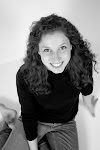"The temper of a true liar, with his frank, fearless statements, his superb irresponsibility, his healthy, natural disdain of proof of any kind! After all, what is a fine lie? Simply that which is its own evidence (833)."
Oscar Wilde's dialogue, "The Decay of Lying," is so unusual in its theme. However, it actually culminates in very sensical thinking. The chat between two educated men revolves around a paper written by one of the men. He plans on having it published in a periodical that, in reality, no longer exists. It's already ironic that a paper discussing "The Decay of Lying" should assume it's publication under pretension!
The writer of the paper explains to his companion that true "Art" is something that rejects realism and also rejects the notion that one can produce Art through the "imitation of Life." If we decide that Art is not just an imitation of Life, then we begin to wonder from where Art is generated. If not Life, then what? It takes a minute to wrap your mind around the idea that Art could actually be perceived as something existing before a human conception.
What is most interesting to me about this work is how thoroughly it presents its arguments. The writer in the story makes every effort to "cover all of his bases." How smart of Wilde to make his case while inserting a character into the dialogue who can argue against his friend. He makes interjections asking "why?" and "how can you really say such a thing?" This separate participant in the writing makes for a deeper credibility to what is, obviously, a thought-process belonging to Wilde himself.
Another striking feature of the work is that the content is not the most pressing aspect. Of course, it is saturated with topics for fruitful discussion, but there is no real question as to what the writing concerns. It asks for "Arts for Art's sake." Although it is complicated, there is little to be argued about. What is most memorable about the piece, is that it is written in a play-script sort of mold, however, one gets the distinct impression that it is not meant to be performed; rather, it is meant to be read to oneself. It is so wordy that one can't stand to imagine watching it in a performance. Why watch someone read a paper aloud when you could read it yourself? Shaw's "Pygmalion" has this same readable quality. When reading it, we find that Shaw's intermittent narration was never meant to be read onstage. Eliza and Higgins' long, tedious speeches are much better understood when read slowly--not necessarily while watching them onstage. Perhaps this is why you are much more likely to find a performance of the musical My Fair Lady over Pygmalion itself!
One wonders, though, if Wilde breaks his own rule in writing "The Decay of Lying." We know within the first few paragraphs that it is meant to be informational, but we are also aware that it is still written with an inclination toward "art" over "academia." We have to wonder how realistic the dialogue actually is. When you think about it, it is not as if the writer in the "play" is simply reciting his paper. He is actually reading it aloud. He writes the stage directions as if there were really no stage, simply declaring that they are "outside." The dialogue is definitely unbalanced for a two-person scene, the writer having precedence over his companion. They casually smoke together. Everything about which he has written is extremely natural. Isn't this exactly what he was writing to fight against?
Perhaps Wilde has managed to satire that which he rejects, probably intentionally. After reading "The Decay of Lying," it is difficult to not agree with Wilde and his argument. It is so well delivered in a way that is natural enough to be considered a sharing of perspectives in the company of our own friends. Maybe that is the difference. "Art" can oftentimes take on such a form of abstraction that we cannot really begin to easily understand it. Realism is different. It doesn't have to "lie" to be convincing and clear. It would seem typical of Wilde to use Realism to make a point and Art to leave an impression.
Thursday, June 19, 2008
Subscribe to:
Post Comments (Atom)

1 comment:
Courtney,
I enjoyed reading your interesting discussion of Wilde's dialogue on art and reality. I don't think this is a new genre so much as a very old one, related to Plato's dialogues of Socrates with his students. The advantage of this genre is to highlight the conflict of opinions, although the reader usually can tell which viewpoint is supposed to be the strongest.
Be sure to proofread your writing: while nonsensical is a word, "sensical" is not. (Although it would make sense if it were.)
Post a Comment